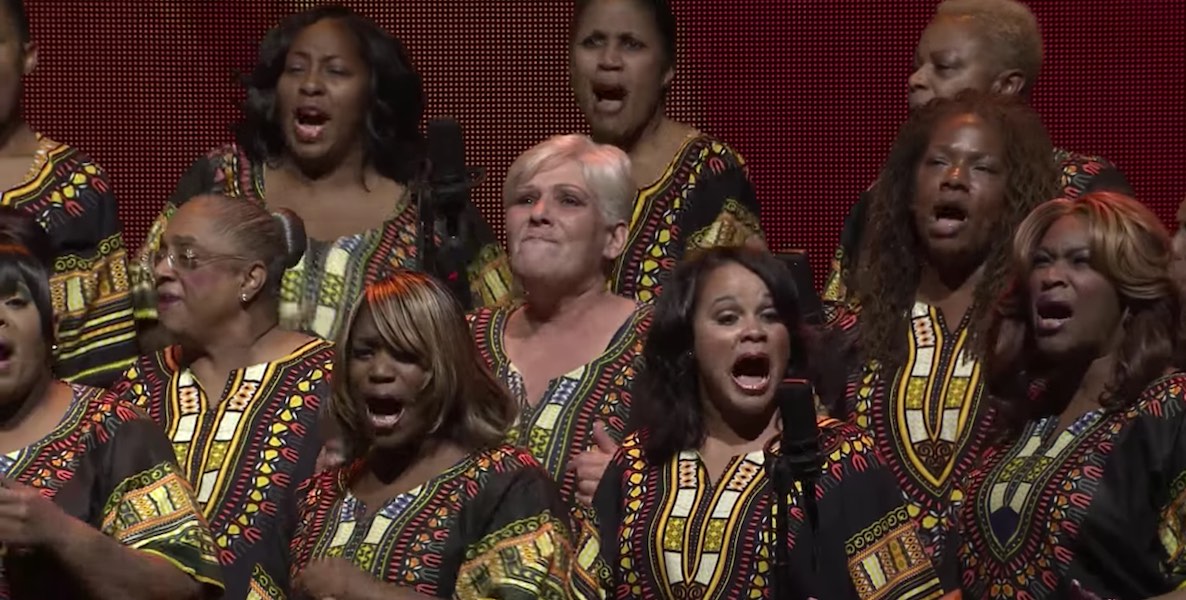Albert Barnes is famous the world over for his huge collection of French impressionist and modernist paintings, now housed in the new Barnes Foundation space on the Parkway. But the eccentric chemist-turned-art collector had another passion, less well-known but no less dear to him: African-influenced art, in particular African American spiritual music.
![]() Once a year for 24 years, Barnes turned his gallery over to the Bordentown Choir, which traveled from south Jersey to perform the music of American slaves that Barnes had loved since he was a child. The concerts, like everything at Barnes’ foundation, were a way to expose people to art forms they otherwise would not be able to experience—and presented a case for African-oriented art being considered of the same caliber as the French masters that surrounded them.
Once a year for 24 years, Barnes turned his gallery over to the Bordentown Choir, which traveled from south Jersey to perform the music of American slaves that Barnes had loved since he was a child. The concerts, like everything at Barnes’ foundation, were a way to expose people to art forms they otherwise would not be able to experience—and presented a case for African-oriented art being considered of the same caliber as the French masters that surrounded them.
“There are two outstanding facts about the music of the American negro slaves that no well-informed person would question: First, it is the only form of art that can be claimed as purely American; second, that it ranks as one of the forms of great music of all times,” Barnes told the crowd at the first concert, on Easter Sunday in 1926. “As art forms, each bears comparison with the great expressions of any race or civilization. In both the primitive sculpture and the music of the Spirituals we find a faithful expression of a people, and of an epoch in the world’s evolution.”
This Sunday, the Barnes Foundation will recreate its founder’s tradition with a Gospel Lunch, featuring the award-winning African Episcopal Church of St. Thomas, which will perform both gospel and spirituals. The concert is free—honoring another of Barnes’ principles, of giving access to people who might not otherwise have it. (Lunch is $28 for members, $30 for non-members.)
The concert is part of a deliberate plan to broaden the reach of the Barnes under director Thom Collins, who took the helm of the museum in 2015. This is both philosophical—the core of Albert Barnes’ mission—and practical: To continue to thrive, museums like The Barnes need to find ways to bring in new audiences that are younger and more racially and economically-diverse.
“Art can be intimidating,” says Martha Lucy, deputy director for education and public programs at The Barnes. “But maybe not if it’s for a free concert. We’re hoping people feel welcome.”
Last fall, the Barnes started offering free weekday admission to all college undergrads, to introduce them to the collection. Lucy says the Foundation is now in the process of launching a film series showcasing different cultures and a twice-yearly forum on race and visual culture; and is developing a plan for free family programming for kids. It will also, for the first time this fall, offer 60 scholarships for the Foundation’s art history classes, which normally run from $350 to $500 per semester. “We’re putting our money where our mouth is,” says Lucy. “We want to appeal to new audiences, and this is a way to do that.”
Sunday’s gospel lunch is a reminder of just how forward-thinking Albert Barnes was for his time. The first concert was part of a symposium on African art, which included lectures by Paris art dealer (and leading expert) Paul Guillaume and educator Thomas Munro, showing the link from African art to modern masters like Matisse and Picasso; and a reading of African American poetry. Lucy says Barnes himself was among the first collectors to display African sculpture as sophisticated art, rather than cultural artifact, displaying it in his art museum among the paintings that have made him famous and contending that they are of equal artistic merit.
Barnes was also passionate about music, and the relationship between music and art—something the spirituals in particular illustrated for him.
“One of his goals as an educator was to demonstrate that African art has aesthetic value,” says Lucy. “He talked about how spirituals were such a raw form of expression, and that really appealed to him. That is what got him interested in all forms of African and African American art.”
Photo header: YouTube/How Sweet the Sound


